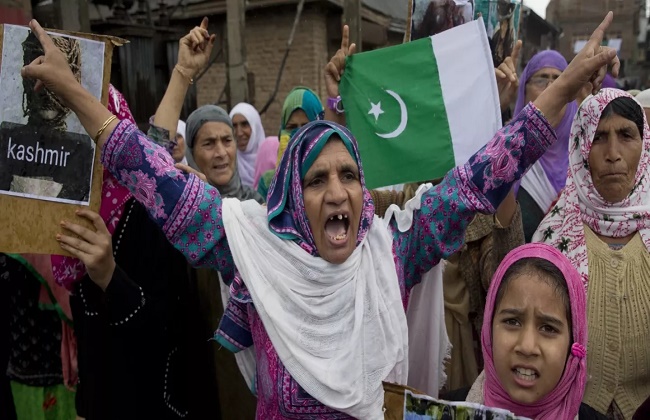
For decades, boycotting elections in Indian-controlled Kashmir was a sign of protest against Indian rule.
That may change on Wednesday, when many residents of the Muslim-majority region say they’re willing to use their vote in a local election to deny Prime Minister Narendra Modi’s party the power to form an administration in the disputed region.
The vote is the first in a decade, and the first since Modi’s Hindu nationalist government in 2019 scrapped the region’s special status and downgraded the former state to a federally governed territory. The move — which largely resonated in India and among Modi supporters — was mostly opposed in Kashmir as an assault on its identity and autonomy.
“Boycotts will not work in this election,” said Abdul Rashid, a resident in southern Kashmir’s Shangus village. “There is a desperate need to end the onslaught of changes coming from there (India).”
The election will allow Kashmir to have its own truncated government and a local assembly, instead of remaining under New Delhi’s direct rule. The region’s last assembly election was held in 2014, after which Modi’s Bharatiya Janata Party for the first time ruled in a coalition with the local Peoples Democratic Party.
But the government collapsed in 2018, after BJP withdrew from the coalition. Polls in the past have been marked with violence, boycotts and vote-rigging, even though India called them a victory over separatism.
This time, New Delhi says the polls are ushering in democracy after more than three decades of strife. However, many locals see the vote as an opportunity not only to elect their own representatives but also to register their protest against the 2019 changes.
Polling will be held in three phases. The second and third phases are scheduled for Sept. 25 and Oct. 1. Votes will be counted on Oct. 8, with results expected that day.
Kashmir is divided between nuclear-armed rivals India and Pakistan. Since 1947, the neighbors have fought two wars over its control, after British rule of the subcontinent ended with the creation of the two countries. Both claim the Himalayan territory in its entirety.
In 2019, the Indian-controlled part of the region was divided into two territories, Ladakh and Jammu-Kashmir, ruled directly by New Delhi. The region has been on edge since it lost its flag, criminal code, constitution and inherited protections on land and jobs.
Multiple pro-India Kashmiri parties, many of whose leaders were among thousands jailed in 2019, are contesting the election, promising to reverse those changes. Some lower-rung separatist leaders, who in the past dismissed polls as illegitimate exercises under military occupation, are also running for office as independent candidates.
India’s main opposition Congress party, which favors restoration of the region’s statehood, has formed an alliance with the National Conference, the region’s largest party. Modi’s BJP has a strong political base in Hindu-dominated areas of Jammu that largely favor the 2019 changes but is weak in the Kashmir Valley, the heartland of anti-India rebellion.

